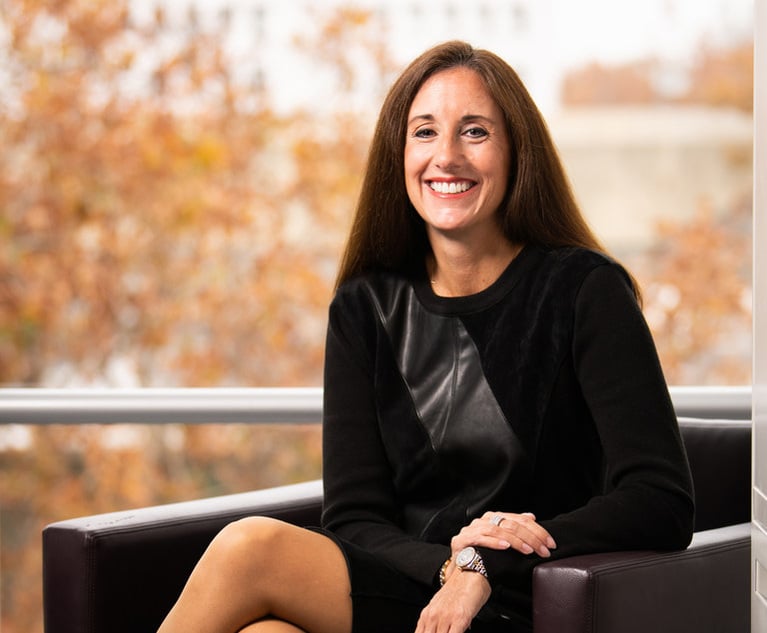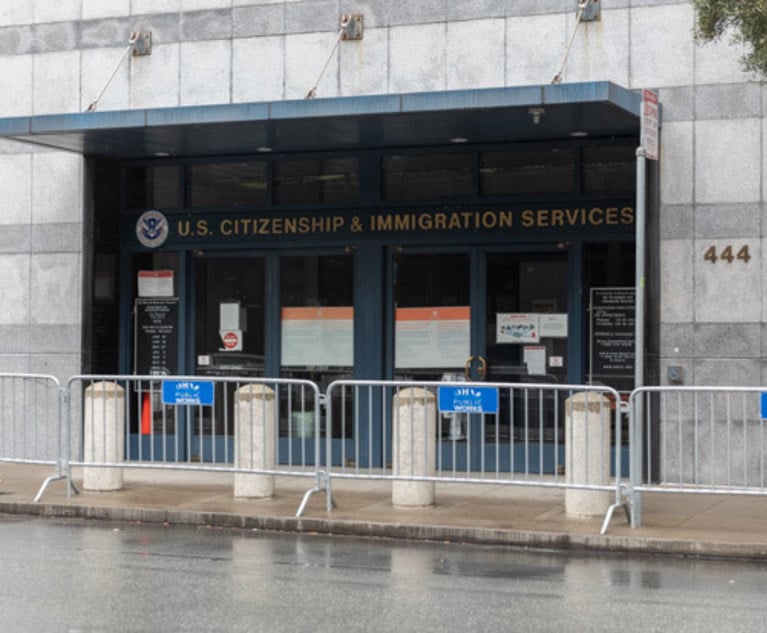 Male farm worker holding pallett of strawberries while standing in a field. Credit: F. Armstrong Photo/Adobe Stock
Male farm worker holding pallett of strawberries while standing in a field. Credit: F. Armstrong Photo/Adobe Stock Uncertain and Afraid: Florida's Immigrants Grapple With a Disrupted Reality Under New Law
Florida is home to about 4.6 million people that are foreign-born, and nearly three-quarters are from Latin America and the Caribbean.
September 18, 2023 at 02:59 PM
6 minute read
For many in Florida's vast immigrant community, daily life in recent months has become one governed entirely by fear.
Some try to drive as little as possible and make fewer trips to the supermarket. Others no longer take their children to the park and worry about allowing them to attend school. Others still are hiding out — avoiding travel to other states, not getting regular medical check-ups, or closing their businesses and leaving town. And many are just on high alert — all because of a new immigration law Republican Gov. Ron DeSantis signed in May.
One of the strictest in the nation, the law criminalized transporting immigrants lacking permanent legal status into the state, invalidated any U.S. government identification they might have and blocked local governments from providing them with ID cards. Florida hospitals that receive Medicaid are now mandated to ask patients about immigration status and businesses employing 25 or more people must verify their workers' legal status.
Other aspects of the law go into effect next year.
DeSantis, who is running for president, signed the bill in hopes of appealing to conservative voters and has criticized President Joe Biden's administration for the massive influx of migrants at the southern border.
"You have a duty to ensure that these borders are secure," DeSantis said at the time, signing the law a day before federal immigration rules enacted during the pandemic ended.
Since then, Associated Press interviews with a dozen immigrants found that daily routines have been upended for fear of being detained, separated from their families and deported.
For one woman, who asked not to be identified for fear of being detained, the change in the law has left her feeling like she traded one world of fear for another.
"I imagined that we were coming to the U.S. to have a better life, to be calmer, but that was not the case," she said. "There is always the fear that something could happen to us."
The 31-year-old single mother of four fled the violence of Honduras for the safety of the U.S. two years ago. Upon arrival, she sought asylum and worked as a house painter to support her daughters and her mother, who still lacks permanent legal status after crossing into the U.S. illegally six years ago.
Before the new law passed, the woman says her mother helped out by driving her grandchildren to school. Now, she is afraid police will ask her to show a driver's license and detain and deport her for not having one.
"She tries not to go out too much, she is being be very careful," she said.
The new law also cost the woman her painting job.
She says her employer — a Salvadoran man also without permanent legal status — abruptly closed his business and left the state. Though she found another job, she worries about supporting her family — she doesn't have the economic resources to move elsewhere.
Florida is home to about 4.6 million people that are foreign-born, and nearly three-quarters are from Latin America and the Caribbean. At least 825,000 lack permanent legal status, according to the most recent Pew Research Center survey from 2017. And about half of those people contribute to Florida's workforce and economy in key industries including agriculture, construction, hospitality and more, according to the American Business Immigration Coalition.
"(The law) is impacting their ability to just go about their day like they used to," said Shalyn Fluharty, an immigration attorney and executive director of the nonprofit law firm American for Immigrant Justice.
Experts like Fluharty characterize the law as vague and confusing, asserting that it raises concerns of mandatory detention, arrests and felony convictions for individuals who have no way of knowing they could be a target, including U.S. citizens who may be transporting immigrants without permanent legal status into the state.
"Whether or not you should be afraid really kind of depends on your unique, individualized, factual circumstances," Fluharty said. Her advice: If you are afraid, consult with a lawyer.
But not everyone can contact a lawyer.
Many have simply changed their way of living — even families of mixed legal status, with some members being U.S. citizens and others without permanent legal status.
Salvador Rosas, a 22-year-old college student, was born in central Florida along with his two brothers. While Rosas and his siblings are U.S. citizens, other family members are not. Their parents, who came to the state in 1999 after leaving Mexico, and their grandmother are living in the country illegally.
Before the new law passed, the family used to drive to Chicago once or twice a year to visit Rosas' grandmother. Now, with fears of being detained and separated, Rosas' parents and grandmother have mutually canceled all travel plans — even with 1,000 miles (1,600 kilometers) between them.
"That's very hard already," he said.
Rosas' mother has lived many years separated from her family in Mexico, and "now, it is going to be like a separation between states," he said.
Despite being a U.S. citizen, Rosas himself fears being detained while traveling and returning to Florida.
Rosas' and others' fears are not unfounded — authorities are already enforcing the law.
A Mexican man who arrived in Florida a year ago was arrested last month while returning from a work trip to Georgia. The Mexican consulate told the AP that the man was stopped by police for driving a van with window tints that appeared darker than the legal limit.
He was arrested and later charged with not having a valid driver's license and multiple counts of smuggling "illegal individuals" into the state, according a Florida Highway Patrol report and court documents. A police report showed that six other people were in the vehicle with the man, including a minor.
The man's arrest echoes the experience of another immigrant who spoke with the AP.
A 45-year-old Mexican man, who asked not be identified for fear of being deported, said a routine traffic stop in 2011 led to a monthlong detention and his later deportation for not having a driver's license.
His wife was pregnant at the time and although he reunited with his family after crossing the border illegally five months later, he missed the birth of his second child.
After Florida's law passed, he moved 1,500 miles (2,400 kilometers) northwest to Wisconsin with his wife and three children after the law passed. The move was worth it. He said he feels "comfortable, calm, more confident" in the Midwest state — a far cry from Florida, where he felt "anxious, pressured and afraid of any police."
"I'm not going to leave my family alone," he said. "I've been through that once."
Gisela Salomon reports for the Associated Press.
NOT FOR REPRINT
© 2025 ALM Global, LLC, All Rights Reserved. Request academic re-use from www.copyright.com. All other uses, submit a request to [email protected]. For more information visit Asset & Logo Licensing.
You Might Like
View All
Lawyers' Phones Are Ringing: What Should Employers Do If ICE Raids Their Business?
6 minute read
EB-5 Rebounds After a Rocky Year: Challenges of 2024 Lay Groundwork for a Booming 2025

'Close Our Borders?' Senate Judiciary Committee Examines Economics, Legal Predicate for Mass Deportation Proposal
3 minute read
Anticipating a New Era of 'Extreme Vetting,' Big Law Immigration Attys Prep for Demand Surge
6 minute readTrending Stories
Who Got The Work
J. Brugh Lower of Gibbons has entered an appearance for industrial equipment supplier Devco Corporation in a pending trademark infringement lawsuit. The suit, accusing the defendant of selling knock-off Graco products, was filed Dec. 18 in New Jersey District Court by Rivkin Radler on behalf of Graco Inc. and Graco Minnesota. The case, assigned to U.S. District Judge Zahid N. Quraishi, is 3:24-cv-11294, Graco Inc. et al v. Devco Corporation.
Who Got The Work
Rebecca Maller-Stein and Kent A. Yalowitz of Arnold & Porter Kaye Scholer have entered their appearances for Hanaco Venture Capital and its executives, Lior Prosor and David Frankel, in a pending securities lawsuit. The action, filed on Dec. 24 in New York Southern District Court by Zell, Aron & Co. on behalf of Goldeneye Advisors, accuses the defendants of negligently and fraudulently managing the plaintiff's $1 million investment. The case, assigned to U.S. District Judge Vernon S. Broderick, is 1:24-cv-09918, Goldeneye Advisors, LLC v. Hanaco Venture Capital, Ltd. et al.
Who Got The Work
Attorneys from A&O Shearman has stepped in as defense counsel for Toronto-Dominion Bank and other defendants in a pending securities class action. The suit, filed Dec. 11 in New York Southern District Court by Bleichmar Fonti & Auld, accuses the defendants of concealing the bank's 'pervasive' deficiencies in regards to its compliance with the Bank Secrecy Act and the quality of its anti-money laundering controls. The case, assigned to U.S. District Judge Arun Subramanian, is 1:24-cv-09445, Gonzalez v. The Toronto-Dominion Bank et al.
Who Got The Work
Crown Castle International, a Pennsylvania company providing shared communications infrastructure, has turned to Luke D. Wolf of Gordon Rees Scully Mansukhani to fend off a pending breach-of-contract lawsuit. The court action, filed Nov. 25 in Michigan Eastern District Court by Hooper Hathaway PC on behalf of The Town Residences LLC, accuses Crown Castle of failing to transfer approximately $30,000 in utility payments from T-Mobile in breach of a roof-top lease and assignment agreement. The case, assigned to U.S. District Judge Susan K. Declercq, is 2:24-cv-13131, The Town Residences LLC v. T-Mobile US, Inc. et al.
Who Got The Work
Wilfred P. Coronato and Daniel M. Schwartz of McCarter & English have stepped in as defense counsel to Electrolux Home Products Inc. in a pending product liability lawsuit. The court action, filed Nov. 26 in New York Eastern District Court by Poulos Lopiccolo PC and Nagel Rice LLP on behalf of David Stern, alleges that the defendant's refrigerators’ drawers and shelving repeatedly break and fall apart within months after purchase. The case, assigned to U.S. District Judge Joan M. Azrack, is 2:24-cv-08204, Stern v. Electrolux Home Products, Inc.
Featured Firms
Law Offices of Gary Martin Hays & Associates, P.C.
(470) 294-1674
Law Offices of Mark E. Salomone
(857) 444-6468
Smith & Hassler
(713) 739-1250






